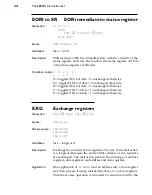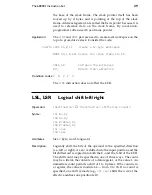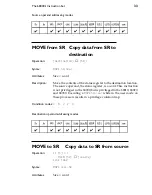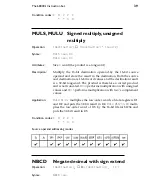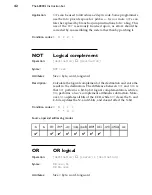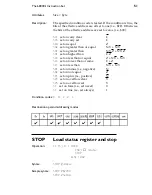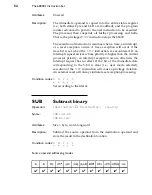
37
The 68000's Instruction Set
Destination operand addressing modes (register to memory)
MOVEP Move peripheral data
Operation:
[destination]
←
[source]
Syntax:
MOVEP Dx,(d,Ay)
MOVEP (d,Ay),Dx
Sample syntax:
MOVEP D3,(Control,A0)
MOVEP (Input,A6),D5
Attributes:
Size = word, longword
Description:
The
MOVEP
operation moves data between a data register and a
byte-oriented memory mapped peripheral. The data is moved
between the specified data register and
alternate bytes
within the
peripherals address space, starting at the location specified and
incrementing by two. This instruction is designed to be used in
conjunction with 8-bit peripherals connected to the 68000's 16-bit
data bus. The high-order byte of the data register is transferred
first and the low-order byte transferred last. The memory address
is specified by the address register indirect mode with a 16-bit
offset. If the address is even, all transfers are to or from the high-
order half of the data bus. If the address is odd, all the transfers
are made to the low-order half of the data bus.
Application:
Consider a memory-mapped peripheral located at address
$08 0001 which has four 8-bit internal registers mapped at
addresses $08 0001, $08 0003, $08 0005, and $08 0007. The
longword in data register D0 is to be transferred to this peripheral
by the following code.
LEA $080001,A0
MOVEP.L D0,0(A0)
This code results in the following actions:
Summary of Contents for 68000
Page 1: ...Motorola 68000 s Instruction Set ...
Page 2: ......


